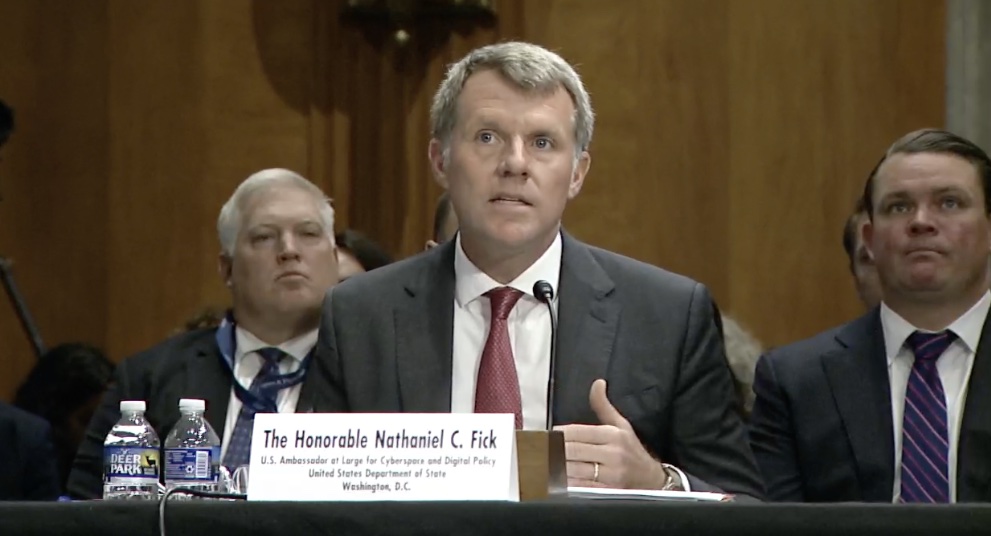WASHINGTON — As global companies continue to advance artificial intelligence capabilities, State Department officials told senators that the U.S. needs to continue to lead AI innovations so it can set international standards that reflect American values.
Nathaniel Fick, ambassador-at-large for the State Department’s Bureau for Cyberspace and Digital Policy, said at a Senate Foreign Affairs Committee hearing Wednesday that the U.S. and its allies have a responsibility to lead the tech race against their geopolitical adversaries to limit misuse of the powerful software.
The U.S. was the global leader in AI research capabilities in 2023, according to AIRankings. Continuing to lead and innovating the best technology will give the U.S. a better opportunity to shape global governance of AI use, Fick testified.
“Put simply, in the realm of geopolitical competition, tech is the game. It is revolutionary and it is accelerating,” Fick said. “The United States must lead, engaging boldly on behalf of our values and interests.”
U.S. AI guidelines, such as an executive order President Biden signed in October, aim to encourage the safe use of the technology and the public’s trust in AI innovations. World leaders had yet to develop global regulations. Few countries had either proposed or adopted regional legislation for the technology.
The U.S. participated in several international discussions surrounding risks of AI and potential global regulations, including at the 2023 G7 Summit. These discussions kicked off a “global harmonization” effort around international AI rules that reflect democratic values and human rights, Fick said.
“We have this dynamic policy landscape, and our overarching next step is to try to drive these [discussions] to convergence in some sort of a comprehensive policy framework that’s going to be to the advantage of rights-respecting allies and partners,” Fick said.
Senators agreed that the U.S. should set global standards for AI use, but Ranking Member Sen. Jim Risch, R-Idaho, was skeptical of U.S. adversaries’ willingness to comply. President Biden and Chinese President Xi Jinping addressed the risks of AI in a bilateral meeting Wednesday in San Francisco.
“Whenever you talk about voluntary, [does] anybody here think that China or Russia are going to voluntarily comply with any international norms when they think it’s in their best interest to do otherwise?” Risch asked.
Fick acknowledged that U.S. adversaries would be unlikely to abide by U.S. standards on AI use.
“Please understand, we’re not naive about whether our adversaries will voluntarily comply,” Fick said. “I think we need to confront an uncomfortable reality in the software era, which is that controlling access to these technologies is somewhere between very difficult and impossible.”

